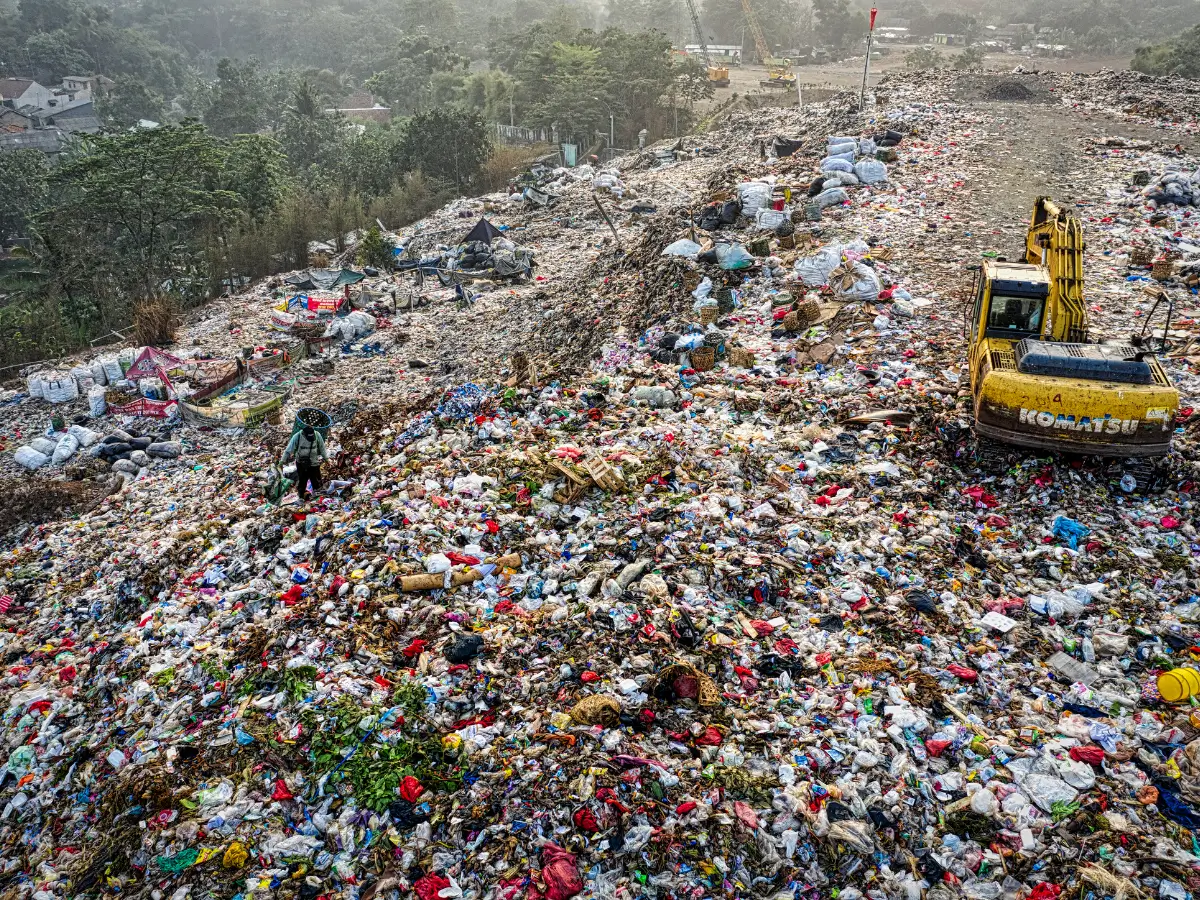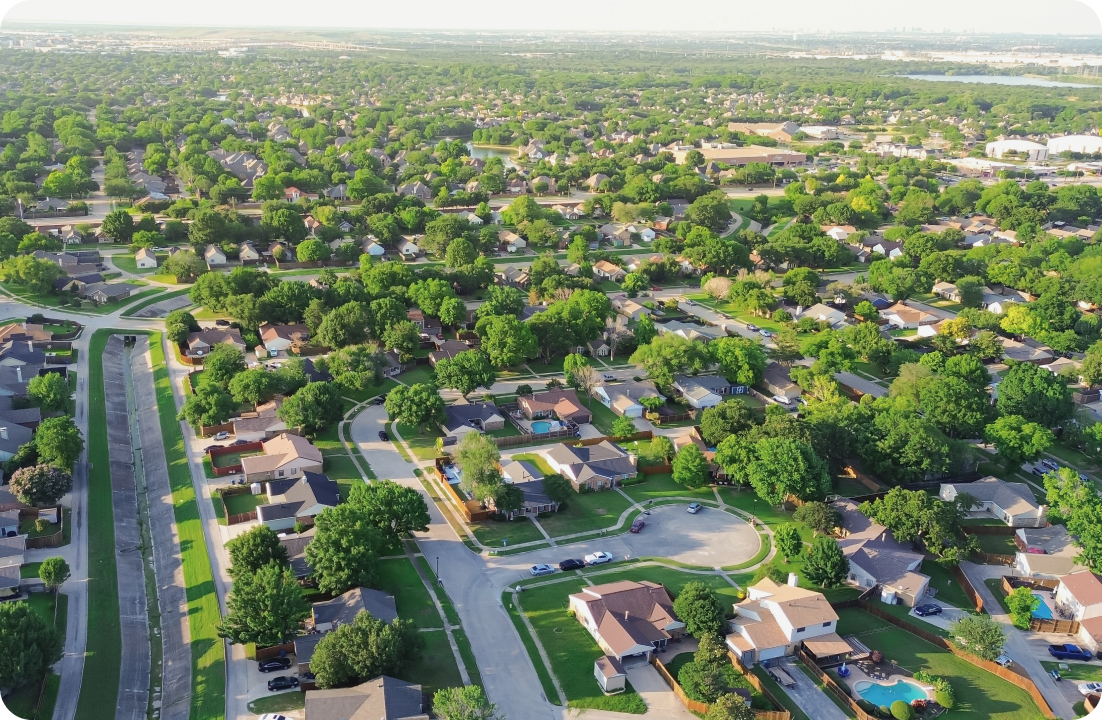How Waste Education Enables Communities to Reduce Waste and Recycle Better

When residents aren't educated on how to properly dispose of waste, contamination and landfill rates go up. Waste education makes a measured difference.
Recycling is a complicated pain point in the waste sector. It’s something most residents don’t realize; recycling rules used to be simple and straightforward, and many think they still are. But with the global market changing in 2018, municipalities have taken over the recycling process and much of the responsibility for ensuring materials are recycled properly is now on the consumer. And when the consumer isn’t educated, contamination rates are high and recycling rates are low.
Further complicating educational efforts is the introduction of Extended Producer Responsibility (EPR). A policy intended to shift responsibility away from municipalities and residents, EPR aims to hold producers responsible—physically and/or financially—for products in the post-consumer stage. As producers’ requirements will differ from municipalities’, this will change recycling rules and education, disrupting municipalities’ current means of educating their residents on proper recycling practices.
The Importance of Community Recycling Engagement
Globally, 2.1 billion tonnes of municipal solid waste (MSW) are produced annually. That number is projected to rise to 3.8 billion tonnes in the next 25 years. Managing this waste also costs billions of dollars in the U.S. alone, not to mention the added detriment to the environment, climate, and people’s health.
Only 19% of the MSW is recycled, which leaves the remaining 1.7 billion tonnes to be incinerated or sent to landfills.
Making a Difference with Recycling Education Platforms
Education is the key to reducing waste and increasing recycling rates. More educated residents produce less waste and recycle more. And it goes beyond that: they recycle more items correctly.
When municipalities implement targeted, informative recycling education, residents respond. In Tacoma, WA, safe battery disposal awareness increased by 7.3% during one three-month-long campaign. Louisville, KY intensified their education efforts by leveraging the Recycle Coach app, increasing outreach efforts, and fostering community partnerships; their recyclable materials increased by 74%. Newark, DE reduced plastic bag contamination by 82% after implementing a one-month campaign on our app.
Sustainability Toolbox: How can Waste Education Benefit Your Community?
- Do your research.
a. What are problem waste management areas for your community?
b. What do your contamination rates look like? Are they higher or lower than the national average?
- How involved are you with your community?
a. Do you actively use social media platforms?
b. Do you get out and interact with members of your community?
c. Do you know how to reach different age groups with pertinent information?
- Determine the benefits of a waste education platform.
a. Is it within your city’s budget?
- Are there grants that you can apply for to implement the platform?
b. Are there problem areas that aren’t being addressed, leading to fewer recyclables and higher costs for your waste management sector?
c. Is your department spending significant time answering resident inquiries regarding waste pickup schedules, what items go where, and what to do with their bulky items?
Easy to use and catered to your location with hyper-local waste information, a waste education platform like Recycle Coach can be used by anyone in the community.
Waste Management Communication
One of the most convenient aspects of Recycle Coach is the ease of communication. Municipalities can reach users through notifications and reminder messages, and users can submit any problems they encounter—such as a missed collection, a damaged bin, incorrect information, and more—all through the app. As a result, our partners see a measurable decrease in phone calls, allowing for time spent on other tasks.
Reports also allow our partners to see how their residents are performing through detailed reports on material searches, educational activities, reported problems, and more.
If your community is facing high contamination rates and your department is unsure of how to handle the educational aspect of waste management, consider an education platform to alleviate stress on your staff, the materials recovery facility, and your community’s residents.
You might also like...

Don't Let Google Search Results Answer Recycling Questions for Your Residents
The first place many residents go for answers to their recycling questions is Google, but more often than not, Google search results yield inaccurate answers. Your residents are basing their recycling knowledge off incorrect information; it's time to reach them with your local recycling rules.

How Bulky Pick-up Tools Make Life Easier in South River, NJ and California
The ease of using Recycle Coach's Bulk Item Pick-up Tool is changing the game for haulers, municipalities, and residents.

Creative Best Practices: Five Tips for Navigating Outreach and Engagement in Your Community
We've spoken to outreach coordinators and recycling education specialists in communities just like yours. Now we've compiled a list of top tips to engage your community with waste education.
How Waste Education Enables Communities to Reduce Waste and Recycle Better

When residents aren't educated on how to properly dispose of waste, contamination and landfill rates go up. Waste education makes a measured difference.
Recycling is a complicated pain point in the waste sector. It’s something most residents don’t realize; recycling rules used to be simple and straightforward, and many think they still are. But with the global market changing in 2018, municipalities have taken over the recycling process and much of the responsibility for ensuring materials are recycled properly is now on the consumer. And when the consumer isn’t educated, contamination rates are high and recycling rates are low.
Further complicating educational efforts is the introduction of Extended Producer Responsibility (EPR). A policy intended to shift responsibility away from municipalities and residents, EPR aims to hold producers responsible—physically and/or financially—for products in the post-consumer stage. As producers’ requirements will differ from municipalities’, this will change recycling rules and education, disrupting municipalities’ current means of educating their residents on proper recycling practices.
The Importance of Community Recycling Engagement
Globally, 2.1 billion tonnes of municipal solid waste (MSW) are produced annually. That number is projected to rise to 3.8 billion tonnes in the next 25 years. Managing this waste also costs billions of dollars in the U.S. alone, not to mention the added detriment to the environment, climate, and people’s health.
Only 19% of the MSW is recycled, which leaves the remaining 1.7 billion tonnes to be incinerated or sent to landfills.
Making a Difference with Recycling Education Platforms
Education is the key to reducing waste and increasing recycling rates. More educated residents produce less waste and recycle more. And it goes beyond that: they recycle more items correctly.
When municipalities implement targeted, informative recycling education, residents respond. In Tacoma, WA, safe battery disposal awareness increased by 7.3% during one three-month-long campaign. Louisville, KY intensified their education efforts by leveraging the Recycle Coach app, increasing outreach efforts, and fostering community partnerships; their recyclable materials increased by 74%. Newark, DE reduced plastic bag contamination by 82% after implementing a one-month campaign on our app.
Sustainability Toolbox: How can Waste Education Benefit Your Community?
- Do your research.
a. What are problem waste management areas for your community?
b. What do your contamination rates look like? Are they higher or lower than the national average?
- How involved are you with your community?
a. Do you actively use social media platforms?
b. Do you get out and interact with members of your community?
c. Do you know how to reach different age groups with pertinent information?
- Determine the benefits of a waste education platform.
a. Is it within your city’s budget?
- Are there grants that you can apply for to implement the platform?
b. Are there problem areas that aren’t being addressed, leading to fewer recyclables and higher costs for your waste management sector?
c. Is your department spending significant time answering resident inquiries regarding waste pickup schedules, what items go where, and what to do with their bulky items?
Easy to use and catered to your location with hyper-local waste information, a waste education platform like Recycle Coach can be used by anyone in the community.
Waste Management Communication
One of the most convenient aspects of Recycle Coach is the ease of communication. Municipalities can reach users through notifications and reminder messages, and users can submit any problems they encounter—such as a missed collection, a damaged bin, incorrect information, and more—all through the app. As a result, our partners see a measurable decrease in phone calls, allowing for time spent on other tasks.
Reports also allow our partners to see how their residents are performing through detailed reports on material searches, educational activities, reported problems, and more.
If your community is facing high contamination rates and your department is unsure of how to handle the educational aspect of waste management, consider an education platform to alleviate stress on your staff, the materials recovery facility, and your community’s residents.
You might also like...

Don't Let Google Search Results Answer Recycling Questions for Your Residents
The first place many residents go for answers to their recycling questions is Google, but more often than not, Google search results yield inaccurate answers. Your residents are basing their recycling knowledge off incorrect information; it's time to reach them with your local recycling rules.

How Bulky Pick-up Tools Make Life Easier in South River, NJ and California
The ease of using Recycle Coach's Bulk Item Pick-up Tool is changing the game for haulers, municipalities, and residents.

Creative Best Practices: Five Tips for Navigating Outreach and Engagement in Your Community
We've spoken to outreach coordinators and recycling education specialists in communities just like yours. Now we've compiled a list of top tips to engage your community with waste education.
Let's work together
We’re a proud partner to 1,700+ municipalities across North America and beyond. From local problems to larger initiatives, we’d love to have a conversation. Send us a note and we’ll be in touch as soon as possible.
